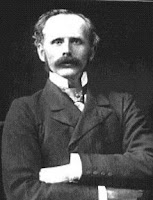The shortest and most simple answer to the question of how the Bible transforms the pejorative term “slave” into a term of dignity and privilege (“servant”) is found in one word: adoption. Slavery was a cultural norm across the centuries of the Bible’s inspiration, commonplace in its many forms, separating people by this social structure. Some entered slavery by conquest, others by unpaid debt or other reasons. The Old Testament explains clearly that slavery was never intended keep a person in that low position indefinitely, and this is where the transformation of the concept begins. Each person purchased for a price should be freed after seven years of service; however, if the slave does not want to leave out of love for his master, that slave is taken to the doorpost of the house where he is nailed through the ear to the house as a sign that he is now quite literally part of the house (Exodus 21:5-6)—not “in” the house but “of” it. A ring through the ear showed the world that he was...

